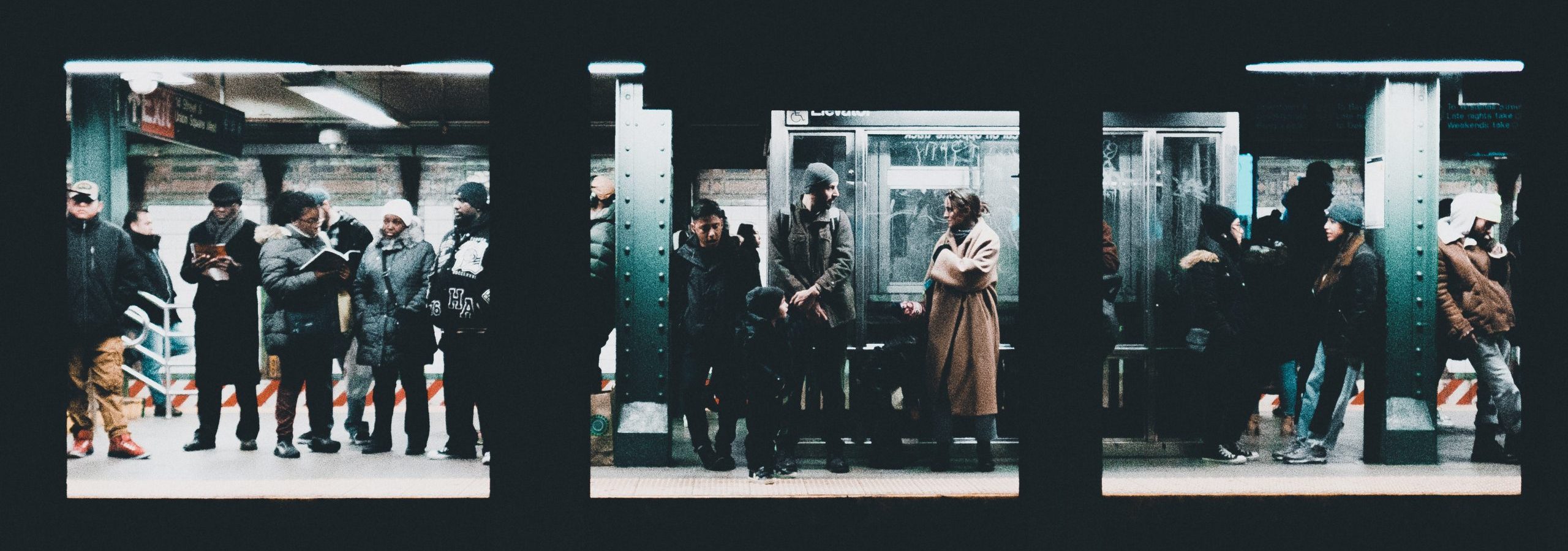Admitting honestly to myself that I do not “love” people in the way I always thought I did might initially make me look like a misanthrope. But when this idea is allowed to flow naturally, it becomes clear that I am somewhere in the middle. The realization is astounding: I don’t love people. Everything begins to appear in a more “normal,” “human” sense, evoking a sense of calm and balance.
I realized that in the past, I simultaneously didn’t love people, feared them, and constantly sought their validation. This is not a coincidence, as I recently came to understand that I have long been dealing with the emotional aftermath of losing the “fusion” with my mother when she died. Subconsciously, I tried to replace her with other symbiotic relationships.
For a long time, love for me was the sensation of “we are one,” which is fundamentally not entirely healthy: each person is an individual, born and will die alone. Yes, we form unions and experience closeness, but “we are one” falls into the realm of “Siamese twins,” inherently excluding the independence of the individual. Now, it seems to me that this completely excludes personal autonomy in almost all areas.
Understanding that in almost any relationship with others, especially close or “tight” work relationships, I often (sometimes unconsciously-aggressively) tried to model (impose) my relationship with my mother, of course, helped, but it did not solve the problem. I couldn’t grasp the idea that people might not want to be loved (in this case, by me): “I smother you with love, and you, ungrateful, don’t appreciate it.”
Perhaps this led to the subconscious transfer of the true reasons for my constant rejection onto invented ones – “because I’m not beautiful enough” (otherwise, why else, since I am a “wonderful” person – this is sarcasm, not a lack of modesty). I had long realized that I was trying to force my love on others, but these realizations had to come together like pieces of a puzzle.
So, I had “I impose my love” (“Sometimes the best way to show you love someone is to spare them from your love”), “I want to merge (in ecstasy) into one (ecstatic) organism as much as possible.” It’s interesting to think if (excessive) sexuality stems from this? Then there was a gap because the puzzle was incomplete. Anyway, the next piece was: “I seek validation.” This piece has two aspects, perhaps even more, but here are the two main ones: “I seek validation because if they acknowledge me, they can’t refuse my love (merge with them in ecstasy)” and “I seek validation to compensate for the insecurity caused by the belief that the reason my love is rejected lies in my appearance (or something else, but not the actual reason).
So. “I impose my love” (I love people so much!), “I want to merge in ecstasy,” “I seek validation.” Therefore, it makes sense that the next piece of the puzzle is: “I fear people.” I fear them rejecting me again, not recognizing my love, and proving that I am not worthy or beautiful enough. This fear is deeply rooted in the need for validation and the desire to merge into one harmonious entity, reminiscent of a symbiotic relationship. Without this harmony, life feels incomplete, and happiness seems unattainable.
That’s it. It’s enough to sincerely answer the most important question: what do I really love? At the same time, I’m not saying I hate people, not at all. I’m just (generally) indifferent to them. When I said I do things for people, I always did them for myself. Yes, I experience cognitive dissonance over many injustices, tragedies, etc., related to people. But mostly, it’s not because I love them. I should also note that there are people in my life who are dear to me, whom I do truly love, but they are only a few people, and they are precious to me. There is also a slightly larger circle of those who are not entirely indifferent to me. But I have no “love” for humanity as a whole or for people in general. I don’t hate them either. And once again, this doesn’t mean I won’t help a stranger in need; it’s just that, most likely, common sense will play a significant role in my decision to help. I don’t know.
In summary, long story short: I don’t love people. Never did. Yet I sought their validation and feared not getting it, getting additional confirmation that I was unworthy of their permission to love me. The vicious circle is closed. Realizing it breaks it. It’s liberating not to need proof that I deserve love. This realization hasn’t given me the understanding that I am “worthy” of it; it seems to have simply eliminated the need for it. The need to be worthy of love.
Since I allowed myself not to love people, I feel good. I have a fairly reliable gauge: when I do something wrong, I eventually feel bad inside. But now, acceptance seems to play a positive role: I feel good, and even though chaos reigns in many other areas (which sometimes happens during internal restructuring – all the dust rises so that the main things can settle properly), inside, there is complete bliss and a sense of wholeness. I initially wanted to write “ever-growing” wholeness, but then I thought it sounded absurd, and “diminishing incompleteness” didn’t appeal to me either, so I just wrote “wholeness.” It’s like a festival for the soul. At the same time, there is no “I’m so great” or similar narcissism. But out of nowhere, I suddenly felt filled with a sense of dignity that isn’t “put on” or “fake,” but comes from somewhere within.
I recall moments from my life where I previously thought I behaved and reacted normally, and I sometimes shudder slightly when I realize just how “low” I was at that time. I wouldn’t allow anyone, including myself, to treat me that way now.
We often link the surrounding world so closely with ourselves that it seems if we say “OK” to someone’s hypocrisy, irresponsibility, selfishness, meanness, or cruelty, we accept it as a norm for ourselves. We cannot continue close relationships with people who possess traits we deem unacceptable. And completely shutting out these people (as if erasing them from reality, “our” reality) is often impossible. We will occasionally remember them and get upset each time. The existence of such people, who we associate with our circle of close ones, feels offensive.
Yet, we constantly forget that we are incapable of noticing anything in this world that does not already exist within ourselves. This is a steadfast rule. As intelligent people, we can understand that “anything” can happen, but much of it remains “beyond the realm of possibility” until it becomes a reality we can’t ignore. There are people who know words like “betrayal,” “murder,” “meanness,” but in their world, everything is so magical that they simply don’t notice such phenomena. Even when something that could be described with these words happens to them, they might find excuses, unable to understand that they are dealing with a bad person.
We can discuss “bad people” endlessly – what is bad, what is good, where is the standard? But now I am talking about something else.
I am trying to understand what I can do to fully realize that when I internally criticize other people, it is myself I am criticizing. How to let this go, how to get rid of this “little hell” that these people are unaware of.
Maybe I am just taking on too much… I just thought that perhaps I can’t forgive myself and accept those traits in me that are reflected in reality this way?! I have had issues with forgiving myself before, but given how dynamic everything has been lately, maybe now is the right time to work on (“improve,” as trendy coaches say) forgiving myself!





No responses yet